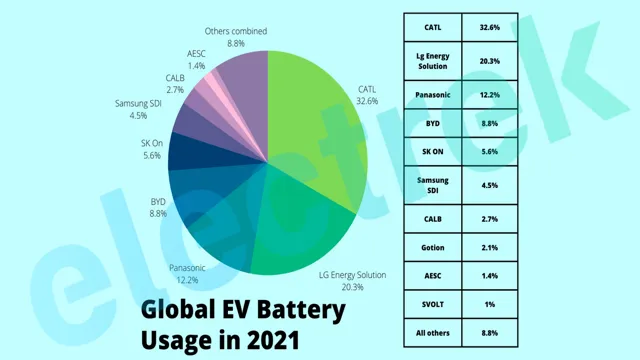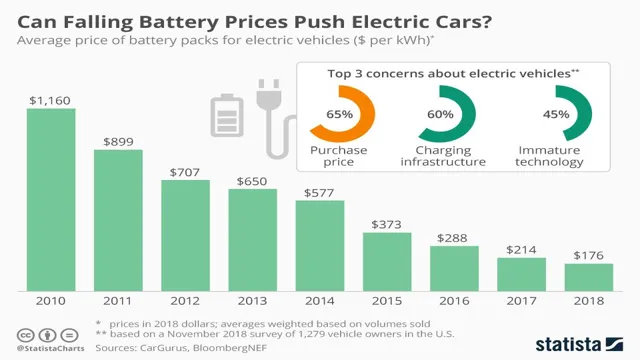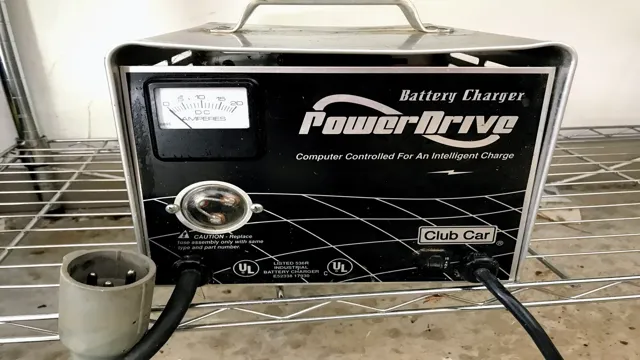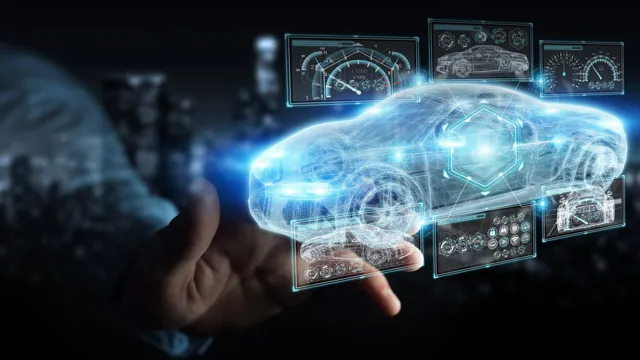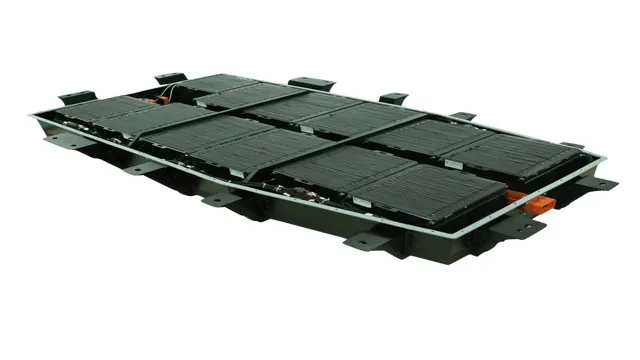Unleashing the Power of Electric Cars: The Ultimate Guide to Using Your EV as a High-Tech Battery Backup
Have you ever thought of using your electric car as a battery backup during power outages? With the world’s increasing reliance on technology and electricity, power outages can be a significant inconvenience, leaving us without access to essential appliances and devices. Fortunately, owning an electric car can come in handy during these situations. Electric cars have huge battery packs that can store large amounts of energy.
These electric vehicle batteries can be used not only to power the car but also to support your household during blackouts. By connecting an inverter to the car’s battery, you can effectively transform your electric car into a power source during emergencies. Using an electric car as a battery backup has several benefits.
Firstly, with the high capacity of electric vehicle batteries, you could potentially power appliances in your home for days, depending on your energy usage. Secondly, the process is relatively easy, and the equipment needed to convert energy into a usable form is readily available. Thirdly, using your electric car as a battery backup is an environmentally friendly and sustainable solution, especially since the electricity stored in the battery comes from renewable sources.
In addition, it’s a cost-effective backup system that doesn’t require you to purchase an expensive generator. As electric cars become more mainstream, incorporating them into our daily lives in different ways can make them even more advantageous. Using an electric car as a battery backup during power outages is just one of the many applications of this technology.
It’s a handy solution that can provide you with peace of mind, knowing that you have a reliable backup power source when you need it most.
Introduction
Have you ever considered using your electric car as a backup battery? With the increasing popularity of electric vehicles, many people are realizing the potential of using their EVs to store energy and power their homes during a power outage. This is known as vehicle-to-grid (V2G) technology, and it allows electric car owners to not only save money on their energy bills but also provide a valuable service to their communities. By utilizing the battery power of their electric cars, they can help alleviate stress on the power grid during peak demand times and ensure that essential services like hospitals and emergency responders have access to reliable energy.
Not to mention, it can also provide peace of mind knowing that in the event of an emergency, your electric vehicle can serve as a reliable backup power source for your home. So, if you’re an electric car owner, consider exploring the potential of V2G technology and how you can make the most of your vehicle’s battery power.
Why Consider Using an Electric Car as a Battery Backup?
Electric car as a battery backup If you’re in the market for a new car and you’re also concerned about power outages and blackouts, you may want to consider an electric vehicle (EV) as a battery backup. EVs are not only eco-friendly and energy-efficient, but they can also serve as a reliable backup power source in case of emergencies. By using the vehicle’s battery as a backup power supply, you can ensure that your home stays powered up during an outage without relying on gasoline generators or other fossil fuels.
Additionally, EVs are equipped with smart-charging technology, which allows you to charge the car during off-peak hours and use the stored energy when you need it the most. By using an electric car as a battery backup, you can save money on your energy bills and reduce your carbon footprint at the same time.
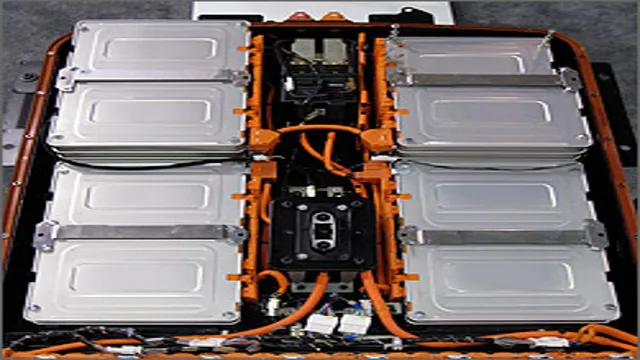
How it Works
If you’re wondering how it works, don’t worry, you’re not alone. Understanding the inner workings of a system, product, or service can be confusing and overwhelming. However, with some guidance, it can be easy to grasp.
How it works refers to the step-by-step process or mechanism that underlies a particular function. This term is commonly used to describe technical systems or applications in the digital world. For example, a web application like Google Maps offers users directions to their destination by using satellite imagery and a complex digital algorithm.
In essence, how it works means understanding the logic and flow of a system, which can be simplified through visual diagrams, textual explanations, or video tutorials. By understanding how something works, users can operate it more efficiently and solve problems more effectively.
Benefits of Using an Electric Car as a Battery Backup
Using an electric car as a battery backup is a win-win situation for both the environment and your household. Besides providing transportation, electric cars can be utilized to power your home during a blackout or when the grid goes down due to natural disasters or maintenance. When you plug your electric car into your home’s power system, you’re essentially using it as a generator, which can provide you with hours, if not days, of electricity.
Not only will you be able to save money on your energy bills, but you will also be reducing your carbon footprint. Additionally, electric cars come equipped with advanced technology that allows you to monitor your home’s energy consumption and adjust your usage accordingly. So, the next time you’re considering purchasing an electric car, keep in mind its potential to serve as a backup source of power for your home.
Cost Savings
As electric cars become more popular, people are starting to realize that they can do more than just save on fuel costs. One of the benefits of using an electric car is that it can serve as a backup battery during power outages. This not only provides peace of mind, but it can also save you money in the long run.
When the power goes out, you can use your electric car to power your home, which means you won’t have to rely on expensive generators or pay for costly repairs to damaged equipment. Plus, if you have excess energy stored in your electric car, you can sell it back to the grid and earn money. It’s a win-win situation that not only saves you money but also helps keep the environment clean.
As more people switch to electric cars, we can reduce our reliance on fossil fuels and create a better future for ourselves and our planet. So why not join the electric car revolution and start reaping the benefits today?
Environmentally Friendly
When it comes to being environmentally friendly, electric cars are at the forefront of the conversation. But did you know that using an electric car as a battery backup can also have numerous benefits? Not only can you have peace of mind knowing that you have a backup power source during emergencies, but you can also save money on electricity bills by utilizing the stored energy from your car. Plus, with renewable energy sources becoming more popular, your electric car can act as a personal energy storage unit.
It’s like having your own little power plant in your garage! By using an electric car as a battery backup, you’re not only helping the environment but also making your life more convenient and cost-effective. So why not explore this option and see how it can benefit you and the planet?
Emergency Preparedness
Emergency Preparedness One of the benefits of using an electric car as a battery backup is that it can provide power during an emergency. When the power goes out, an electric car can provide energy to your home through its battery. This can come in handy during times of natural disasters or other emergencies.
Not only can it keep your lights on, but it can also power necessary medical equipment, refrigerators, and other appliances. It eliminates the need for costly and potentially dangerous generators that run on gasoline. Plus, electric cars are becoming more common, so finding one to use as a backup may become easier.
In times of crisis, having a reliable backup power source can make a significant difference.
Considerations Before Using an Electric Car as a Battery Backup
Using an electric car as a backup battery is an innovative approach to sustainable energy solutions that’s growing in popularity. However, some considerations must be taken into account before deciding on this option. Firstly, the battery capacity of your electric car needs to be sufficient to meet your backup needs.
If your battery doesn’t have enough charge, you may be forced to park your car and wait for it to charge. Secondly, it’s important to check whether your electric car manufacturer’s warranty allows for using the car as a backup battery. In some cases, using the car as a battery backup can potentially void your warranty.
Lastly, using an electric car as a backup battery may require using it as a stationary power source for long periods. This could lead to battery degradation and a shorter overall lifespan for your car. Overall, using an electric car as a backup battery can be a great way to reduce your reliance on traditional energy sources, but careful consideration is required before making the switch.
Battery Life Expectancy
Electric car batteries have a limited lifespan and can degrade over time, which is important to consider before using an electric car as a battery backup. Lithium-ion batteries, which are commonly used in electric cars, can last up to 10 years or 100,000 miles, but their lifespan can be affected by factors such as temperature, charging habits, and frequency of use. It’s also important to note that using an electric car as a battery backup could potentially drain the battery quickly, meaning that it may not be able to power your home for an extended period.
It’s always best to consult with a professional before using an electric car as a backup power source. Additionally, investing in a home battery system specifically designed for backup power may be a more practical and reliable solution.
Compatibility with Home Appliances
Before using an electric car as a backup power supply for your home appliances, there are a few important factors to consider. First, you should ensure that your electric car is compatible with the appliances in your home. This means assessing the energy requirements of your appliances and the storage capacity of your electric car’s battery.
Additionally, you should consider the level of charge in your electric car’s battery when using it as a backup power source, as it may not be fully charged at all times. It’s also important to keep in mind that using an electric car as a backup power source can drain the battery, potentially impacting the vehicle’s ability to drive when needed. Overall, while using an electric car as a battery backup can be a convenient and eco-friendly option, there are important considerations to keep in mind to ensure compatibility and prevent damage to the vehicle.
Conclusion
In conclusion, the electric car as a battery backup system is more than just a clever way to power your vehicle. It’s an innovative solution that offers a sustainable and reliable source of energy for your home or business in times of need. Whether you’re looking to reduce your carbon footprint or simply want to be prepared for a potential power outage, an electric car as a battery backup is a smart investment for the future.
After all, why let your car’s battery go to waste when you can use it to keep the lights on?”
FAQs
How can electric cars be used as a battery backup?
Electric cars can be used as a battery backup by utilizing their built-in battery packs to power homes or businesses during power outages.
What are the benefits of using electric cars as a battery backup?
The benefits of using electric cars as a battery backup include reduced reliance on traditional power sources, potential cost savings, and increased energy resiliency.
Can electric cars be charged using solar panels during blackout?
Yes, electric cars can be charged using solar panels during a blackout, providing an emergency source of renewable energy.
Are there any challenges to using electric cars as battery backup?
Some challenges to using electric cars as battery backup include limited battery capacity, potential damage to the car battery, and the need for specialized equipment to connect the car to a building’s electrical system.
